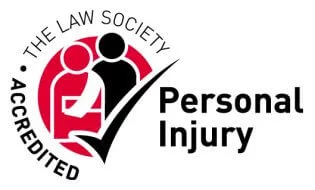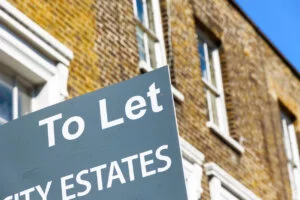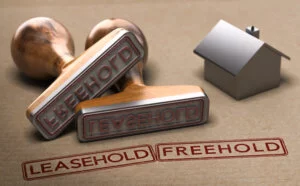Why Accurate Property Valuations Matter

Contact
Table of Contents
Insights from a Chartered Surveyor
Many clients underestimate the importance of an expert property valuation. Whether you’re extending a lease, going through a probate sale, or settling a divorce financial agreement, an accurate valuation can save time, reduce disputes, and prevent costly mistakes.
At Osbornes Law, we regularly work with Saul Gerrard, a Chartered Surveyor and Registered Valuer with over 25 years’ experience. Saul supports our clients with detailed valuations for residential and commercial property across a wide range of legal matters.
In this guest article, Saul shares his professional insights on why valuations matter, what the process involves, and how collaboration between surveyors and lawyers benefits clients.
Why professional valuations make a difference
- Property valuation is an art and not a science. An expert valuation requires far more than simply taking a cursory look at the property; knocking on some walls; scanning the internet; glancing at old agents’ details; and sending out a report.
- Valuing a property accurately involves care, due diligence and a multi-factor investigation process. It also means considering the client’s ultimate aims and objectives. This is why, whether you’re buying or selling a property or managing your existing assets, you should instruct a specialist valuer who understands your needs.
- Your valuer should also consider the needs of other professionals, such as your accountants or your legal team, and they should liaise with your other professionals to act in a client’s best interests.
- As expert chartered surveyors, we can flag up to the lawyers a pertinent issue that we may have seen at the property, that they, or their clients may not otherwise know about, to make sure that we and they as your team of professionals, have considered broader issues that will affect our clients.
- A valuer undertaking cursory ‘drive-by’ valuation is highly unlike to spot important or possibly contentious issues with the property about which the clients should be forewarned.
What to expect from the valuation process
I thoroughly enjoy taking the time with my clients to explain the valuation process, whether it is for a lease extension and enfranchisement matter on a flat, or a probate valuation on a house, or a rent review on a shop. My primary role is to educate, inform, and empower my clients so they know what they will get as a valuation, how best to use it, and what happens next. A valuation is not simply the use of mathematical equations. As expert valuers, we must first consider what is our client’s immediate and ultimate goal. Ultimately, our valuation process is split into four parts.
- We secure instructions from the client; liaise with the solicitor (if instructed); undertake a pre-inspection protocol (downloading legal information, consulting lease plans, reviewing the area and previous sales or lettings, and other preparatory work).
- We will inspect and measure your unit in detail using a laser measure, and take a photographic schedule, (considering how the property is configured: the physical layout, condition, design and structure, external spaces, etc) and review the locality while in the area.
- Back at the office we will re-review what has been seen and noted at the inspection. We will read the lease and check the legal documents and spend time gathering (investigating and critically appraising) the comparable evidence. This is when the all-important subjective analysis must be done. I always try to find comparable evidence that most closely matches the property in question. It’s exceptional to find two identical properties, so you need to adjust to account for the property’s condition, configuration, location, lease length and any personal drivers. However, the basis of valuation varies. Eg in lease extensions the law requires a hypothetical basis that the property is in a repaired and renewed state; and is as it was at the grant of the lease (disregarding authorised tenants’ improvements). If alterations have been done without consent, this can have serious ramifications (another illustration of why it’s vital an expert surveyor physically inspects and reports on the property!)
- Once all the investigations are complete, your report will be written and prepared for issuing. We will be available to answer any questions once the report is issued and discuss follow-on work that may be required post the valuation.Attention to detail in spotting anomalies within evidence is key to valuations. Valuation is often not about the information you can find – it’s about the investigation and analysis of the information. And this is where the true weight of an expert valuation becomes front and centre. We can give clients the added value in the professional advice they’re receiving.
When expert valuations are essential
I’m instructed to undertake expert property valuations in many types of cases, including:
- Lease extensions and enfranchisement – This is a changing area, and it is key that clients understand the impact of possible changes in legislation in making decisions.
- Divorce settlements – Valuing matrimonial property for the purposes of financial settlements on divorce is key as it is often contentious. It requires expert reports for court involvement and sensitivity from valuers.
- Probate valuations and valuation for inheritance tax (IHT) planning – IHT is charged at 40% so having an expert valuation can have a huge impact on the IHT payable. It is understood that the district valuer, who checks the probate property valuations, will give greater credence to a valuation done by an RICS member.
- Pension funds – They will normally want a valuation by an RICS member in setting the rent for commercial properties on acquisition and connected transfers. The fund beneficiary can often choose the valuer.
- Capital Gains Tax (CGT) assessment and property transfers – Where a transfer is not at arm’s length, an open market value of the property may be required, as that will form the basis on which CGT or IHT is calculated. For some transfers, the CGT start date may differ from the date of ownership (eg a 1982 or 2015 start date).
- Commercial property – Commercial properties may be valued for pension funds for acquisition or disposal, or when reviews of the market rent are required (we may be acting for the landlord or the tenant). We may also be involved where there are negotiations, having first managed expectations with a valuation; or for referral to a third party in contentious matters.
Working hand-in-hand with your legal team
As chartered surveyors, we enjoy a valuable working partnership with our client’s legal team. We view ourselves as part of a team of professionals working for our client’s benefit. And as my primary duty of care is to the client (not the legal team) my client always comes first.
This is how it works in practice: if a legal point arises, the team at Osborne Law will take the lead and I will defer to them on legal matters. Conversely, if a property or valuation issue arises – I will take the lead and the legal team will defer to my judgement on matters of valuation.
We have built a strong relationship. Our relationship is such that we can question each other without any of us being offended – because ultimately we’re all on the same side, doing the best for the client.
Sometimes, having someone question you is actually the best way to make sure you are doing the best for the client, or that you have framed your advice in a way most easily understood by them.
Why use a Chartered Surveyor for property valuations?
A property is often the most valuable (monetary) asset a client owns. You shouldn’t enter into a legal contract without the advice of a solicitor; and if you want to make the most of your property interest you should get advice from an expert in property valuation – a chartered surveyor.
Valuing a property is often said to be an art not a science. Valuing property has traps and pitfalls that may lead to errors: a valuer must be aware of the requirement to focus on the clients’ needs, knowing the basis of valuation and the law or precedent governing the valuation.
This is why it is important to instruct a registered valuer and chartered surveyor who is a specialist in property valuations.
Chartered surveyors, as members of the Royal Institute of Chartered Surveyors (RICS), are part of a professionally recognised body with a higher level of standard and requirements to which they are held. Therefore, they have greater credibility.
With over 25 years of experience, Saul and his team at Saul Gerrard Surveyors act for large companies, sole traders and investors. He also acts for leaseholders and landlords, as well as parties on divorce, executors and property trustees, and property owners involved in litigation.
The value of expert valuation advice
An expert valuation doesn’t just provide a number – it offers clarity, protects your interests, and supports better decision-making. Whether you’re dealing with probate, planning for tax, or negotiating a lease, the right valuation is essential.
Speak to a solicitor at Osbornes Law to find out how we can support your property-related matter with trusted professionals like Saul Gerrard.
To speak to a residential conveyancing solicitor.
- Call us on 020 7485 8811, or
- Fill out a contact form below
Share this article
Need a Property Valuation?
Call us 020 7485 8811
Email us Send us an email and we’ll get back to you
Accreditations
Related InsightsVIEW ALL
- 20.11.2025
Section 8 Notices: A Complete Guide for Landlords and...
What is a Section 8 Notice? A Section 8 notice is one of the two principal statutory routes a landlord in England...
Read more - 9.4.2025
Buying Off-Plan Properties: Key Steps To Take
Considerations and steps to take when buying an off-plan property Buying off-plan properties can be an attractive option, as many...
Read more - 5.3.2025
TOLATA Claim Settled At Mediation
Complex TOLATA claim settled after an extensive mediation We recently settled at mediation, a complex TOLATA case involving a dispute...
Read more - 4.12.2024
Security of Tenure
Security of tenure gives business tenants the right to stay in their property after the lease ends and request a...
Read more - 4.12.2024
Section 25 Notices
A Section 25 notice plays an important role in commercial leases, letting landlords and tenants know what’s next when a...
Read more - 4.12.2024
Section 21 Notices
Update: Major changes confirmed under the Renters’ Rights Act 2025. From 1 May 2026, section 21 “no fault” evictions will be abolished and new...
Read more - 18.11.2024
Rent Repayment Orders
Guidance for Rent Repayment Orders (RROs) for Landlords in the UK Rent Repayment Orders (RROs) are legal orders requiring a...
Read more - 13.11.2024
Evicting a Tenant
Update: Major changes confirmed under the Renters’ Rights Act 2025. From 1 May 2026, section 21 “no fault” evictions will be abolished and new...
Read more - 23.10.2024
Buying and Selling Homes in Hampstead Garden Suburb
Buying a house in Hampstead Garden Suburb While character, green spaces and the best of domestic architecture are big draws...
Read more - 16.10.2024
Managing Litigants: Court Powers and Defendant Options
How can the court control a litigant? Most people wish to live out their lives without the need to face...
Read more - 15.10.2024
How do you determine a boundary?
Whether the boundary dispute relates to a rear garden boundary or whether it relates to a driveway, the issue of...
Read more - 14.10.2024
Can You Challenge a Restrictive Covenant?
Challenging a restrictive covenant! Is it obsolete? It is well known that section 84(1) of the Law of Property Act 1925 allows...
Read more - 12.8.2024
Buying a Second Home
Buying a second home is an exciting step, but it comes with several considerations, including understanding the rules for buying...
Read more - 27.5.2024
The Leasehold and Freehold Reform Bill 2024
The Leasehold and Freehold Reform bill was one of the last pieces of legislation to make it through Parliament on...
Read more - 22.3.2024
Renters’ Rights Act 2025
Summary: The Renters' Rights Act 2025 will abolish Section 21 notices, ending "no fault evictions" and replacing Assured Shorthold Tenancies with Assured...
Read more - 22.3.2024
Client successful in TOLATA proceedings
The case related to proceedings under the Trusts of Land and Appointment of Trustees Act 1996 (“TOLATA”) in respect of joint...
Read more - 23.1.2024
Freehold Service Charge Disputes
Service Charges & the Leasehold and Freehold Reform Bill The Leasehold and Freehold Reform Bill was introduced to Parliament on 27...
Read more - 23.1.2024
Know your Rights (of Way)
If you have a question or concern over a right of way on your property, it is important to seek...
Read more - 23.1.2024
Party Wall Etc Act 1996 v Common Law
The case of Power & Kyson & Shah [2023] EWICA Civ 239 The case of Power & Kyson & Shah [2023] EWICA Civ 239...
Read more - 8.11.2023
Leasehold update: A new Leasehold and Freehold Bill...
Yesterday, 7th November 2023, in the King’s Speech we heard the following: “My Ministers will bring forward a bill to...
Read more - 27.10.2023
The Building Safety Act 2022
Introduction to the Building Safety Act 2022 This much awaited Building Safety Act 2022 was introduced into Parliament on 5th May 2021 as...
Read more - 22.8.2023
Reasonableness of Service Charges
Reasonableness of Service charges under the Landlord and Tenant Act 1985 It is well known that the relevant costs that a...
Read more - 19.5.2023
Declaration of Trust for Property
If you are buying a property jointly, you may want to consider making a declaration of trust to record your...
Read more - 11.5.2023
Lease Extension Negligence
What is Lease Extension Negligence? Solicitors Negligence when a Tenant claims a new lease of a flat under the Leasehold...
Read more































